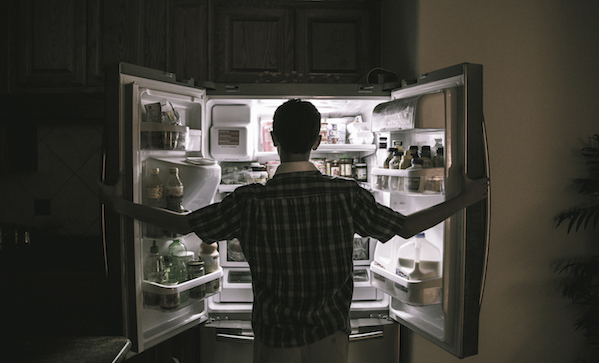Is it a coincidence that, after a late night out, you feel like gorging on street corner poutine? Probably. But if late nights become a habit, that poutine might too.
That’s the thrust of a new study published in Sleep. Healthy adults who slept less than normal hours ate more and ate later than those who get a good night’s sleep.
In their experiment, researchers measured the body weight, caloric intake, and meal timing of 225 healthy adults aged twenty-two to fifty; twenty seven served as a control group, and the rest were put on a schedule of two baseline nights, five sleep-restricted nights, and two recovery nights.
Researchers found that sleep-restricted subjects gained more weight than control subjects, with men gaining more than women. Sleep restricted subjects consumed more calories than the control subjects, ate a greater number of meals, and ate more frequently late at night.
So, trying to lose a little weight? Maybe stop burning the midnight oil.


